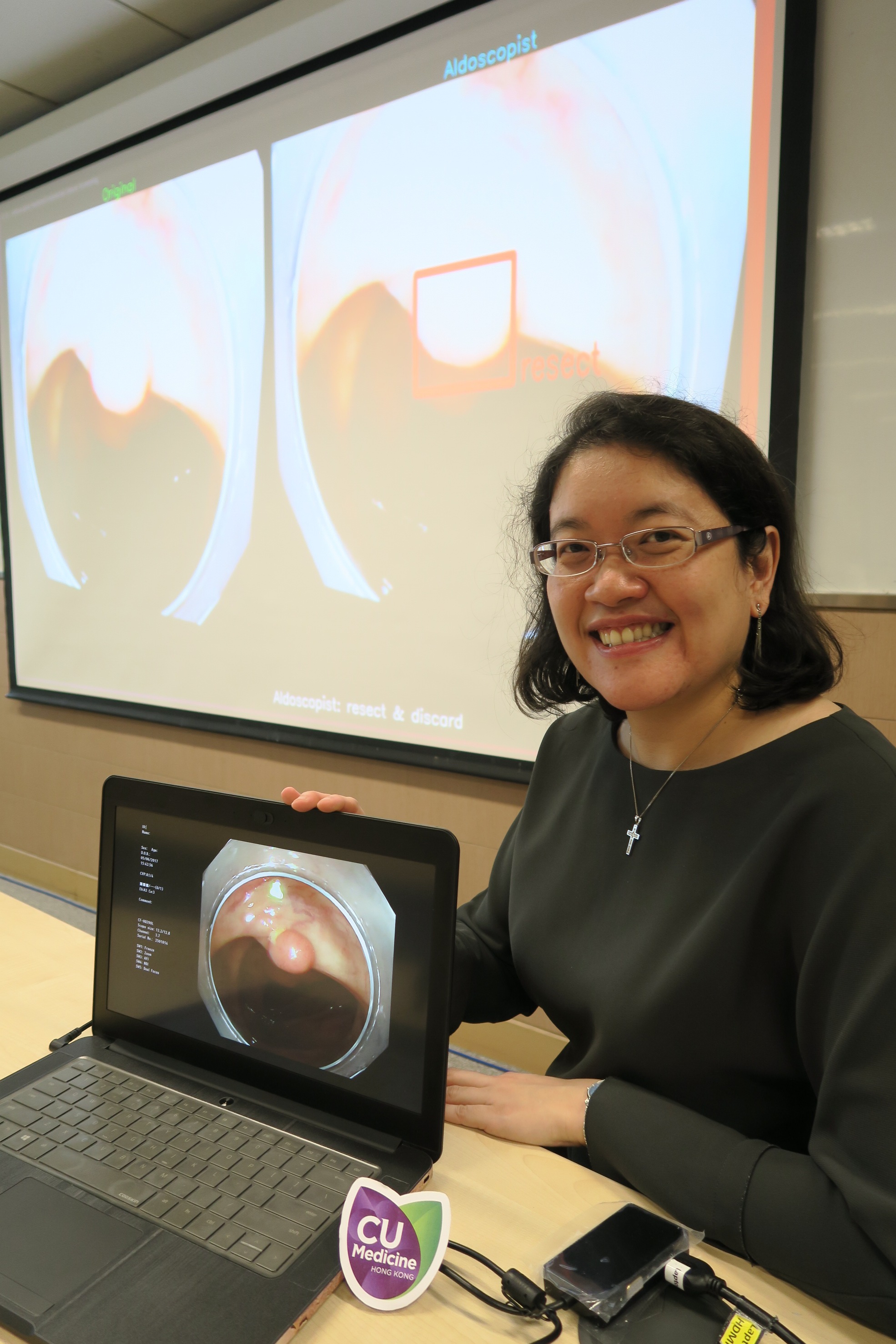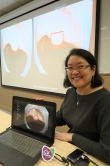CUHK
News Centre
CUHK Develops A Real-Time Computer-aided Diagnosis System for Cancer Screening during Colonoscopy named AIdoscopist Reducing Risk of Misdiagnosis And Increasing Medical Efficiency
‘AIdoscopist: A Real-Time Computer-aided Diagnosis System for Cancer Screening during Colonoscopy’ is one of the ten technological research projects which The Chinese University of Hong Kong (CUHK) will showcase at the coming International ICT Expo 2018 at the Hong Kong Convention and Exhibition Centre from 13 to 16 April. The System is able to greatly reduce the risk of miss-detecting and miss-classifying colorectal polyps and so increase medical efficiency and reduce cost.
Prof. POON Chung Yan Carmen, Department of Surgery, CUHK and the research team collected 300 sets of unstructured endoscopic images with clean labels from Prince Wales Hospital. By using the advanced machine learning technologies, including deep learning and transfer learning techniques with a novel architecture, the artificial intelligent system has been built to analyse each endoscopic image and then evaluate each polyp. The team’s ultimate goal is to achieve expertise in accuracy.
According to the Hong Kong Cancer Registry of the Hospital Authority, colorectal cancer is the most common cancer in Hong Kong, and was the second leading cause of cancer deaths in 2015. CUHK has been concerned with public health for many years. We launched a territory-wide bowel cancer screening programme a few years ago. Recently, the Hong Kong government has also been aware of the importance of colorectal cancer prevention. In 2016, a colorectal cancer screening pilot programme was introduced, subsidising senior citizens to join the colorectal cancer screening.
To perform colorectal cancer screening, colonoscopy examination is one of the most effective ways. It allows the doctor to examine the whole colonic wall and remove the polyp(s). However, two major problems may occur when diagnosing a colorectal polyp, namely missed polyps and misclassified polyps. To solve the problems, the CUHK research team has developed a real-time artificial intelligent diagnosis system for polyp detection and polyp type classification during colonoscopy.
Existing computer-aided systems only can perform either polyp detection (i.e. with or without polyps) or polyp-type classification (neoplastic or non-neoplastic). However, the system developed by CUHK can perform both tasks simultaneously by formulating the problem as a three-class image classification task (non-polyp, non-neoplastic polyp and neoplastic polyp). After using this artificial intelligent system, it is foreseeable that, in future colonoscopy, doctors will be able view each diagnosed image in real time, which will help them to make an instant decision on polyp removal in order to greatly reduce the risk of miss-detecting and miss-classifying colorectal polyps. Thereby, an increase in medical efficiency and a reduction in costs will be achieved.
Prof. POON’s team is planning to commercialise this technology, expecting to launch the artificial intelligent diagnosis system on the market in one to two years’ time. To know more about the aforementioned technology and other recent technological projects, please visit CUHK’s booth at the International ICT Expo (Booth No.: 3G-B04).





